Key Grounds Property Management, based in Oakville and serving Simcoe County, approaches tenant disputes with a clear and structured method. They begin with thorough tenant screening to reduce potential issues. When complaints arise, the team responds promptly using multiple communication channels, including 24/7 support. Maintenance concerns are tracked carefully to prevent disagreements over property condition. If tenants breach lease terms, Key Grounds follows a stepwise notice system before considering eviction, strictly adhering to Ontario’s Residential Tenancies Act. They also involve property owners in decisions and utilise local mediation services to resolve conflicts amicably. This balanced strategy ensures disputes are handled efficiently while protecting everyone’s interests.
Table of Contents
- Overview of Key Grounds Property Management
- Tenant Complaint Handling Procedures
- Communication Channels for Tenants
- Maintenance and Emergency Response System
- Tenant Screening Process to Avoid Disputes
- Lease Terms and Enforcement Practices
- Stepwise Approach to Lease Breach and Eviction
- Legal Framework Governing Tenant Disputes in Ontario
- Role of the Landlord and Tenant Board
- Local Mediation and Legal Support in Simcoe County
- How Key Grounds Ensures Transparency and Reporting
- Summary of Tenant Dispute Resolution Strategies
- Contact and Support Services Offered by Key Grounds
- Frequently Asked Questions
Overview of Key Grounds Property Management
Key Grounds Property Management, based in Oakville, Ontario, serves a wide area including Simcoe County with expertise in both residential and commercial property management. Their team comprises Certified Property Managers holding respected industry designations and memberships, ensuring professional standards in every aspect of service. The company offers comprehensive solutions such as tenant screening, lease administration, rent collection, maintenance coordination, and dispute management, supported by 24/7 tenant and owner assistance. By implementing clear policies and utilising modern technology, Key Grounds maintains effective communication and efficient maintenance tracking, which helps in preventing many tenant disputes before they arise. Their focus lies in maximising property value for owners while minimising risks through diligent oversight and legal compliance. Detailed financial and operational reports keep property owners well-informed, fostering transparency and trust. This solid foundation allows Key Grounds to handle tenant relations and disputes calmly and fairly, emphasising resolution and legal adherence to protect both tenants and landlords within Simcoe County’s regulatory framework.

Tenant Complaint Handling Procedures
At Key Grounds Property Management, tenant complaints are acknowledged promptly to ensure tenants feel heard and valued. Upon receipt, each complaint is quickly assessed to determine its urgency and validity, with safety or emergency concerns receiving immediate priority. Communication with tenants is always clear, respectful, and carefully documented to maintain transparency and avoid misunderstandings. When necessary, issues are discussed with property owners to guide decision-making in line with both parties’ interests. Resolution efforts strictly follow legal guidelines to ensure fairness and compliance with the Ontario Residential Tenancies Act. Throughout the process, tenants are kept informed of progress, fostering trust and cooperation. Detailed records of complaints and their outcomes are maintained to support accountability and to help identify recurring issues. Should initial resolution attempts fail, well-defined escalation procedures are activated, which may involve mediation or formal proceedings. The overall focus remains on problem-solving and preventing the recurrence of disputes, which contributes to healthier landlord-tenant relationships and smoother property management.
- Complaints are acknowledged promptly upon receipt
- Assessment of issues is done quickly to determine urgency and validity
- Communication with tenants is clear, respectful and documented
- If needed, complaints are discussed with property owners for decision-making
- Resolution efforts follow legal guidelines to ensure fairness
- Tenants are kept informed of progress throughout the process
- Records of complaints and resolutions are maintained for accountability
- Escalation procedures are in place if initial resolution attempts fail
- Focus on problem-solving to avoid recurrence of issues
- Complaints involving safety or emergency concerns receive immediate priority
Communication Channels for Tenants
Tenants receive comprehensive contact details at the time of lease signing, ensuring they know exactly how to reach property management whenever needed. Key Grounds Property Management offers multiple communication methods, including phone and email, to suit different preferences. For urgent matters, a 24/7 customer support line is available, allowing tenants to report emergencies or critical issues at any hour. Routine maintenance requests and general queries are efficiently handled through an online portal or ticketing system, providing a clear record of those communications. Response times are closely monitored to guarantee timely replies, reflecting a commitment to accessibility and professionalism. All communication is conducted with a neutral and professional tone to maintain respectful and constructive dialogue. Tenants are kept informed with regular updates during dispute resolution or maintenance processes, promoting transparency and trust. Records of all communications are maintained to support clarity and accountability if disputes arise. Additionally, Key Grounds proactively reaches out to tenants regarding policy changes or important notices, reducing confusion and fostering an open line of communication throughout the tenancy.
Maintenance and Emergency Response System
Maintenance requests at Key Grounds Property Management are managed through a dedicated ticket system that logs and tracks each issue from initial report to completion. This system ensures transparency and timely responses, allowing tenants to feel confident their concerns are addressed. To reduce the chance of faults and disputes, scheduled preventative maintenance is routinely carried out, alongside proactive inspections that identify potential problems before they escalate. Tenants receive detailed welcome packages outlining emergency procedures and contact information, ensuring they know exactly who to reach out to in urgent situations. When urgent repairs arise, these are prioritised and dealt with immediately, regardless of the time of day, to maintain safety and comfort. Communication about upcoming maintenance schedules is shared clearly with tenants to minimise disruption and misunderstandings. Contractors and service providers engaged by Key Grounds are carefully vetted for quality and reliability, guaranteeing that repairs meet high standards. After work is completed, follow-ups are conducted to confirm tenant satisfaction and resolve any lingering concerns. Maintenance records are meticulously kept for both legal compliance and operational review, supporting smooth dispute resolution if necessary. Clear guidelines are also provided to tenants regarding their responsibilities in reporting issues promptly, fostering a cooperative approach that helps prevent conflicts related to property upkeep.

Tenant Screening Process to Avoid Disputes
At Key Grounds Property Management, tenant screening is a vital step to reduce the risk of disputes in Simcoe County rental properties. The process begins with income verification to ensure applicants can comfortably afford the rent, helping avoid issues related to non-payment. Credit checks provide insight into an applicant’s financial responsibility, while a thorough review of rental history highlights any previous tenancy problems such as late payments or property damage. Identity verification is conducted to prevent fraud, and reference checks from former landlords offer additional perspective on the applicant’s behaviour and reliability. Where permitted by law, criminal background checks are also performed to enhance safety. These screening criteria are applied consistently to all applicants, promoting fairness and transparency. Applicants are fully informed about the screening process, including the requirements and outcomes. If an application is declined, Key Grounds provides clear explanations that comply with privacy regulations, maintaining respect and professionalism. By selecting tenants carefully through this comprehensive screening, Key Grounds significantly lowers the chances of disputes arising, protecting both landlords’ investments and tenants’ living experiences.
Lease Terms and Enforcement Practices
At Key Grounds Property Management, lease agreements for Simcoe County rental properties are crafted with clear and detailed terms to prevent misunderstandings that often lead to disputes. Each lease specifies the exact rent amount, due dates, and accepted payment methods, with clearly outlined late payment penalties and grace periods to encourage timely payments. Rules concerning property alterations and subletting are explicitly stated, ensuring tenants understand the boundaries of acceptable changes and sub-tenancies. Both tenant and landlord responsibilities for maintenance and repairs are carefully defined, including procedures for reporting damage and how repair costs may be charged if applicable. The leases also incorporate terms on dispute resolution and eviction procedures aligned strictly with the Ontario Residential Tenancies Act, ensuring legal compliance and fairness. Tenants receive a signed copy of their lease, and management retains records for reference. Lease renewals are communicated well in advance, offering tenants an opportunity to negotiate terms or address concerns before renewal, helping to avoid last-minute conflicts. Additionally, periodic lease reviews are conducted to keep agreements current and enforceable, reflecting any legislative changes or evolving management policies. This thorough approach to lease terms and enforcement supports a transparent and balanced relationship between landlords and tenants, reducing the potential for disputes while safeguarding the interests of all parties involved.
Stepwise Approach to Lease Breach and Eviction
When a tenant breaches their lease agreement in Simcoe County rental properties managed by Key Grounds Property Management, a clear, stepwise process is followed to address the issue while complying with Ontario tenancy laws. Initially, an official notice is issued to inform the tenant of the specific breach, such as late rent payment or unauthorised property alterations, and requests that the tenant remedy the situation within a given timeframe. If the tenant fails to resolve the issue, a second notice is sent as a firm reminder that the breach remains unresolved. Should the breach continue, a final notice is delivered warning the tenant of impending eviction proceedings if the matter is not addressed promptly. Only after these notices have been exhausted and no satisfactory remedy obtained does Key Grounds proceed with filing an eviction application with the Landlord and Tenant Board (LTB). All eviction notices strictly follow prescribed formats and timelines mandated by the Residential Tenancies Act to ensure legal compliance. An eviction order from the LTB is required before any lockout or repossession can take place; Key Grounds never undertakes such actions without this legal authorisation. Throughout the entire process, communication with the tenant remains open to encourage resolution without escalating to eviction. Meanwhile, Key Grounds carefully documents all issued notices and tenant responses, maintaining a detailed record to support the eviction application if necessary. Property owners are kept informed and consulted at each stage, providing approval or guidance on how to proceed. This transparent and measured approach balances the need to protect the owner’s investment with respect for tenant rights and legal obligations.
| Step | Description |
|---|---|
| Initial Notice | Notification of default with a request to resolve |
| Second Notice | Follow-up if issues persist |
| Final Notice & Eviction | Formal eviction steps taken if unresolved, including lock-out after legal protocols |
| Eviction Applications | Filed with Landlord and Tenant Board when necessary |
| Legal Compliance | Eviction notices follow prescribed formats and timelines under Ontario Residential Tenancies Act |
| Lockout/Repossessions | Occurs only after Landlord and Tenant Board order obtained |
| Communication | Continues throughout process to encourage resolution |
| Documentation | All notices and tenant responses are maintained |
| Owner Consultation | Owners consulted at each stage for approval and instructions |
| Compliance | Strict adherence to Ontario tenancy laws |
Legal Framework Governing Tenant Disputes in Ontario
Tenant disputes in Ontario are primarily governed by the Residential Tenancies Act (RTA), which clearly outlines the rights and responsibilities of both landlords and tenants. This legislation sets the rules for important matters such as legitimate grounds for eviction, procedures for rent increases, and maintenance obligations. For instance, landlords must ensure properties are kept in good repair, while tenants are expected to adhere to lease terms and take proper care of the premises. When disputes arise, the Landlord and Tenant Board (LTB) serves as the official adjudicator, offering resolution through mediation or formal hearings. Both landlords and tenants can file applications online, making the process accessible and efficient. The LTB’s decisions are legally binding and enforceable, ensuring compliance with the law and protecting parties from unlawful actions. Tenants also have access to legal advice and support, which helps maintain a fair balance in landlord-tenant relations. In Simcoe County, local mediation services complement this framework by providing an informal way to resolve conflicts before escalating to the LTB. Overall, adherence to the RTA and utilisation of the LTB’s dispute resolution mechanisms form the backbone of managing tenant disagreements, promoting a lawful and respectful rental environment.

Role of the Landlord and Tenant Board
The Landlord and Tenant Board (LTB) serves as the official tribunal for resolving tenancy disputes across Ontario, including Simcoe County. Its primary role is to provide a fair and impartial forum where both landlords and tenants can present their cases regarding issues such as eviction applications, rent disagreements, and other tenancy-related claims. Before matters proceed to formal hearings, the LTB encourages mediation, offering a chance for parties to reach an amicable settlement without the need for lengthy legal proceedings. Applications and case tracking are conveniently accessible online via the Tribunals Ontario Portal, allowing landlords and tenants to file documents and monitor their cases efficiently. Hearings are scheduled with proper notice given to both sides, ensuring each party has the opportunity to prepare and present evidence. Decisions are grounded in tenancy law and the facts presented, and any orders issued by the LTB are enforceable through legal channels if necessary. Beyond dispute resolution, the Board also plays an educational role, providing resources to inform landlords and tenants of their rights and responsibilities under the Residential Tenancies Act. This support helps reduce misunderstandings and promotes smoother relationships. By ensuring procedural fairness and offering accessible dispute resolution tools, the LTB significantly reduces the need for protracted court cases, making it a vital component in managing tenancy conflicts within Simcoe County rental properties.
Local Mediation and Legal Support in Simcoe County
In Simcoe County, tenant disputes are often addressed through local mediation before escalating to formal legal action. The Mediation Centre of Simcoe County offers a neutral platform where landlords and tenants can work towards mutually agreeable solutions without the need for a formal hearing. This approach not only saves time and costs but also helps preserve positive relationships. When disputes require legal intervention, certified paralegals based in Barrie provide essential support by assisting landlords with eviction notices and related paperwork, ensuring all steps comply with the Residential Tenancies Act. Additionally, legal representatives offer advice on tenancy law compliance, helping both parties understand their rights and responsibilities. Community resources and local organisations actively promote awareness of these rights, while collaboration with Key Grounds Property Management enhances smooth dispute handling on the ground. This combined network encourages open communication and conflict resolution, favouring mediation and negotiation before involving the Landlord and Tenant Board, thereby fostering a more effective and less adversarial dispute resolution process within the region.
How Key Grounds Ensures Transparency and Reporting
Key Grounds Property Management prioritises clear and open communication with property owners to foster trust and accountability. Each month, owners receive detailed financial reports that outline income, expenses, and rent collections, providing a clear view of their property’s performance. Maintenance costs and service charges are broken down explicitly in owner statements, ensuring no hidden fees or surprises. When tenant disputes or maintenance issues arise, property owners are promptly updated with relevant tenant communication, offering insight into ongoing resolutions. Utilising digital platforms, Key Grounds tracks rent payments and tenant interactions, improving transparency and enabling owners to monitor their investments in real time. Lease renewals and tenant screening outcomes are regularly shared to keep owners informed about tenant stability and any potential risks. In cases involving tenant breaches or evictions, detailed reports document all legal actions taken, adhering strictly to provincial regulations. Property inspections and maintenance schedules are also recorded and communicated, reinforcing proactive management. Owners have open channels to request additional reports or clarifications whenever needed, reflecting a commitment to responsive service. Accounting practises at Key Grounds comply fully with provincial laws and auditing standards, ensuring financial integrity. Moreover, significant property issues or tenant disputes trigger immediate notifications to owners, allowing them to stay ahead of potential problems and make informed decisions.
Summary of Tenant Dispute Resolution Strategies
Tenant disputes in Simcoe County rental properties managed by Key Grounds Property Management are addressed through a clear, structured approach focused on prompt acknowledgement and professional communication. When a tenant raises a complaint, it is swiftly assessed to determine the best course of action, with open dialogue maintained between tenants, property owners, and management. Maintenance concerns are tracked via a ticketing system, ensuring timely repairs that help prevent conflicts related to property conditions. For lease breaches, a stepwise notice system is employed: an initial notification requesting resolution, a follow-up if issues persist, and a final eviction notice if necessary, all strictly following the Ontario Residential Tenancies Act. To reduce the chances of disputes occurring, thorough tenant screening is conducted, including income, credit, rental history, references, and criminal checks. Lease agreements clearly define tenant responsibilities, rent terms, and rules on alterations or subletting to avoid misunderstandings. Support is available 24/7 for both tenants and landlords, including emergency response services. Where possible, local mediation services are engaged to resolve disagreements amicably before formal proceedings. This balanced strategy ensures disputes are managed efficiently, legally, and with respect to maintaining positive landlord-tenant relationships.
Contact and Support Services Offered by Key Grounds
Key Grounds provides comprehensive support services to both tenants and landlords, ensuring concerns are addressed promptly and effectively. Their customer support operates 24/7, allowing tenants and property owners to raise issues at any time via multiple channels including phone (+1 289-412-1744), email (info@keygrounds.com), and website contact forms. The physical office in Burlington serves as a local hub for Oakville and Simcoe County clients, offering a direct point of contact for more complex matters. Tenants receive clear instructions at lease signing on how to report maintenance needs or disputes, with emergency contact details included for urgent safety or repair issues. A dedicated team manages all tenant disputes and maintenance requests, tracking progress and maintaining regular communication to keep both parties informed throughout the resolution process. Beyond daily support, Key Grounds offers guidance on lease terms, renewals and the legal process involved in dispute resolution. When necessary, they facilitate access to local legal and mediation resources to resolve more serious conflicts. This professional and accessible approach helps maintain positive relationships and ensures that tenant concerns are handled efficiently and in line with legal requirements.
Frequently Asked Questions
1. How do you approach communication between tenants to resolve disputes?
We prioritise clear, calm communication by encouraging tenants to discuss concerns openly. When necessary, we mediate conversations to help both parties understand each other and find a reasonable solution.
2. What steps are taken when noise complaints arise between neighbours?
First, we listen to both sides and gather details about the incidents. We then remind tenants of local noise regulations and request that they respect quiet hours, aiming to resolve the matter without further escalation.
3. How are maintenance issues managed if they trigger disagreements among tenants?
We ensure all maintenance concerns are logged and addressed promptly. If disagreements occur over responsibility or timing, we clarify obligations according to tenancy agreements and arrange repairs in a way that minimises disruption.
4. In cases of harassment or intimidation between tenants, what is the typical response?
We take such issues seriously by investigating the claims thoroughly. We support the affected tenant, document the situation, and take appropriate action which may involve warnings or involving local authorities if the behaviour persists.
5. What role does mediation play in settling disputes without legal involvement?
Mediation acts as a neutral ground where tenants can express their views with professional guidance. We facilitate this process to help parties reach a mutually satisfactory agreement, often preventing the need for formal legal proceedings.

